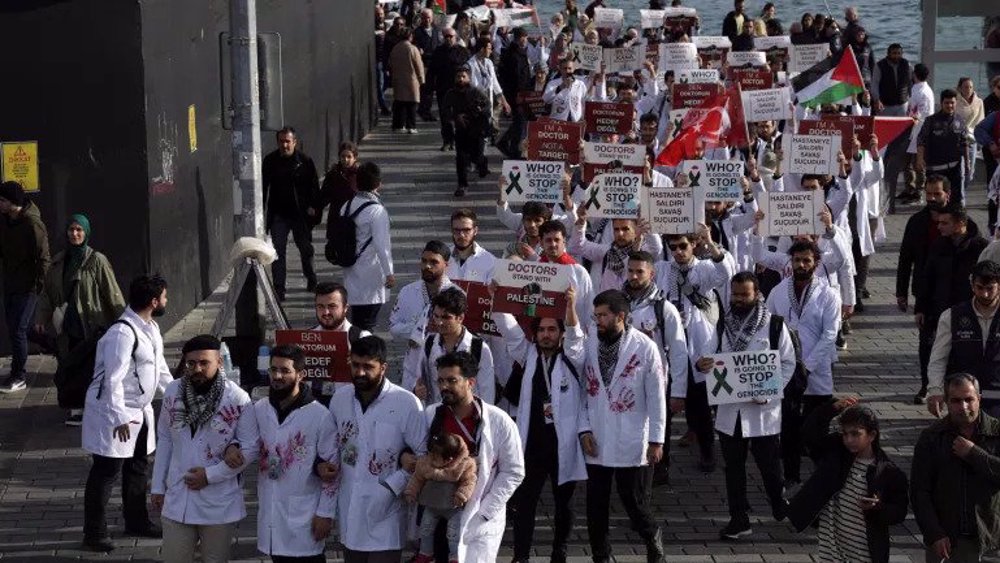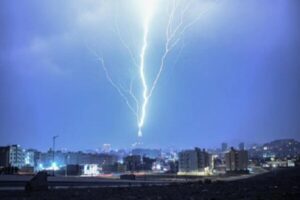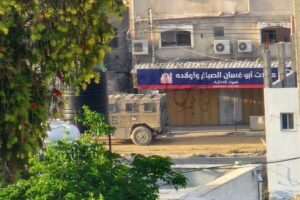Turkish physicians and medical students have staged a silent march in solidarity with Palestinian health workers, who are struggling to save the lives of the victims of a brutal Israeli aggression against the Gaza Strip amid an acute lack of fuel and medical supplies.
Wearing lab coats with red hand prints, the Turkish doctors rallied in the city of Istanbul on Saturday.
They carried signs reading, “Doctors stand with Palestine,” “Who is going to stop the genocide?” and “I’m a doctor not a target”.
Israel waged the war on Gaza on October 7 after the Palestinian Hamas resistance group conducted Operation Al-Aqsa Storm against the usurping entity in retaliation for its intensified atrocities against the Palestinian people.
Since the start of the onslaught, the Tel Aviv regime has killed at least 15,207 Palestinians, mostly women and children, injured 40,652 others and left vast swathes of Gaza in ruins.
Thousands of Palestinians are missing and believed to be under the rubble in Gaza, home to more than two million people who are being subjected to a “complete siege” by Israel.
The occupying regime has also targeted medical facilities in its attacks on Gaza in flagrant violation of international law.
Gaza Health Ministry spokesman Ashraf Al-Qudra said on Saturday that hospitals in the blockaded enclave have lost their capacity to treat patients.
“All hospitals are overcrowded with the number of wounded, exceeding their medical capabilities and capacity, and lacking surgical tools and bone stabilizers,” he added.
‘Gaza under electricity blackout since Oct. 11’
Meanwhile, the UN Office for the Coordination of Humanitarian Affairs (OCHA) shared data from the Gaza Electricity Distribution Company that confirmed the besieged coastal sliver has had no electricity over the past 52 days.
The data showed that Israel’s electricity supply to Gaza ceased on October 8 and that the territory’s power plant stopped working on October 11.
Gaza only had an average of 13.3 hours of electricity per day from January to September 2023, according to the data.
“For the past decade, the Gaza Strip has suffered from a chronic electricity deficit, which undermined already fragile living conditions,” the OCHA update said.
“The ongoing power shortage has severely affected the availability of essential services, particularly health, water, and sanitation services, and undermined Gaza’s fragile economy, particularly the manufacturing and agriculture sectors.”
A seven-day truce between Hamas and Israel marked a lull in the bloody assault on Gaza, but the regime resumed its attacks on Friday after the expiry of the agreement.
Humanitarian operations ‘limited’ in Gaza
In its update, OCHA said that since Israel recommenced its offensive, only limited humanitarian operations have taken place within Gaza among them the provision of services in shelters.
It further expressed grave concerns about waterborne diseases in Gaza, saying, “There has been almost no improvement in the access of residents in the north to water for drinking and domestic purposes for weeks.”




